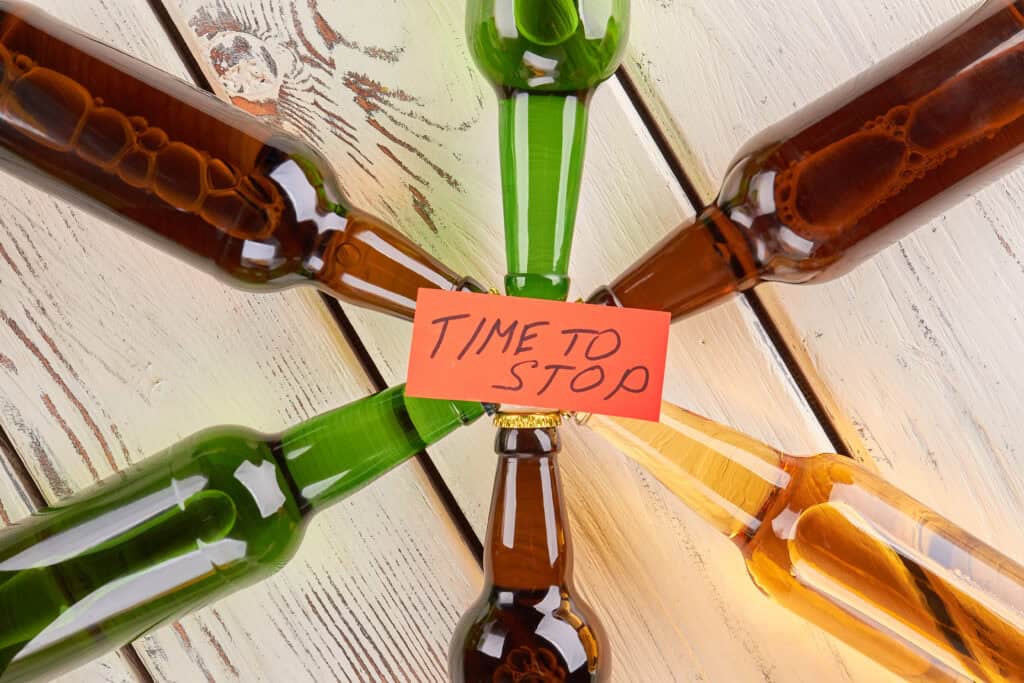Unlock Your Health: The Dangers of Alcohol Detox
Take 5 minutes to transform your life
What happens during Alcohol Detox? That is a huge question for most people looking to stop drinking. Detox is the first step in getting treatment for alcohol addiction. It’s the process by which your body rids itself of the toxins that built up over time. If you’re ready to begin the process of getting sober, you’ll naturally want to know what to expect. Every individual will have their own experience with detox but generally, they’ll go through withdrawal in three stages. Alcohol Detox and withdrawal are challenging but they’re temporary and achieving sobriety will make it all worth it. Let our Asheville rehabilitation experts take a closer look at alcohol addiction and detox.

Alcohol Addiction Explained
Alcohol addiction or alcoholism is the most severe form of alcohol abuse. People who are addicted to alcohol often believe they must drink in order to function. Over time, this leads to a variety of interpersonal problems and health issues. Jobs, relationships, and friendships can all suffer as a result. If you have a problem with alcohol use, you must seek professional help. Alcoholism isn’t something that goes away on its own.
Symptoms of alcohol abuse include:
- Choosing to drink over your responsibilities
- Experiencing blackouts or short-term memory loss
- Displaying intense mood swings and irritability
- Making excuses for why you drink
- Feeling hungover when you’re not drinking
- Becoming isolated from friends and family
- Neglecting your appearance and hygiene
Alcohol Withdrawal Symptoms
When you use alcohol heavily and over a prolonged period, the body and brain get used to it and become dependent. When this happens, you’ll experience withdrawal symptoms if you suddenly stop drinking. Quitting cold turkey will be uncomfortable because your body needs to adjust to functioning without alcohol.
Side effects include anxiety, nausea, insomnia, tremors, high blood pressure, and insomnia. It is important to have medical supervision during this time since detox can result in life-threatening complications.
A Typical Alcohol Detox Timeline
Alcohol Detox Withdrawal symptoms begin within six to 24 hours following the last drink. They occur in three main stages that range from mild to severe.

Stage 1
Stage one is characterized by mild symptoms that arise six to eight hours into the detox process. These symptoms include:
- Profuse sweating
- Nausea
- Vomiting
- Tremors
- Convulsions
- Visual and auditory hallucinations
- Anxiety
- Insomnia
- Heart failure
- Hypertension
Stage 2
The symptoms in stage two are moderate and they begin when stage one symptoms start to go away. Typically, this is within 12 to 24 hours of the last drink. However, it can take up to three days for these symptoms to begin. The second stage includes:
- Higher blood pressure
- Fever
- Irregular heartbeat
- Irritability
- Confusion
- Sweating
Stage 3
The most severe symptoms often start within 48 to 72 hours into the detox process. The most severe type of withdrawal is called delirium tremens (DTs). It is characterized by:
- Severe confusion
- Severe agitation
- Fever
- Seizures
- Tactile, auditory, and/or visual hallucinations
Severe symptoms of alcohol withdrawal syndrome constitute a medical emergency and about three to five percent of patients will experience DTs. These symptoms can occur without warning. That’s why it’s so important to be supervised by medical professionals who can provide relief. If necessary, medication can be administered during the detox process.
What Happens After Alcohol Detox
After the detox program is completed, it’s time for the next stage of recovery. The treatment program you’ll enter depends on the severity of your addiction and your personal situation. Residential treatment is best for many individuals since they’ll be in a structured environment that offers 24-hour access to medical professionals. You can also benefit from cognitive behavioral therapy, support groups, and other types of treatment. For some individuals, outpatient treatment or a partial hospitalization program is best.
In any case, people recovering from addiction benefit from a range of interventions. These include individual, group, and family counseling and holistic therapy. Through these activities, you’ll gain the skills you need to identify and manage triggers. You’ll also learn to make lifestyle changes that allow you to live a healthier life.
Get Help from Asheville Recovery Center in North Carolina Today!
You can be free from alcohol addiction. Even if you have previously tried unsuccessfully to get sober, you shouldn’t give up. Detox is the first step in finding sobriety and improved health and wellbeing. At Asheville Recovery Center, we offer a range of treatment programs that can be customized to your needs. After you complete detox, we’ll guide you the rest of the way. Simply contact us and we’ll help you get started on the next phase of your life.






